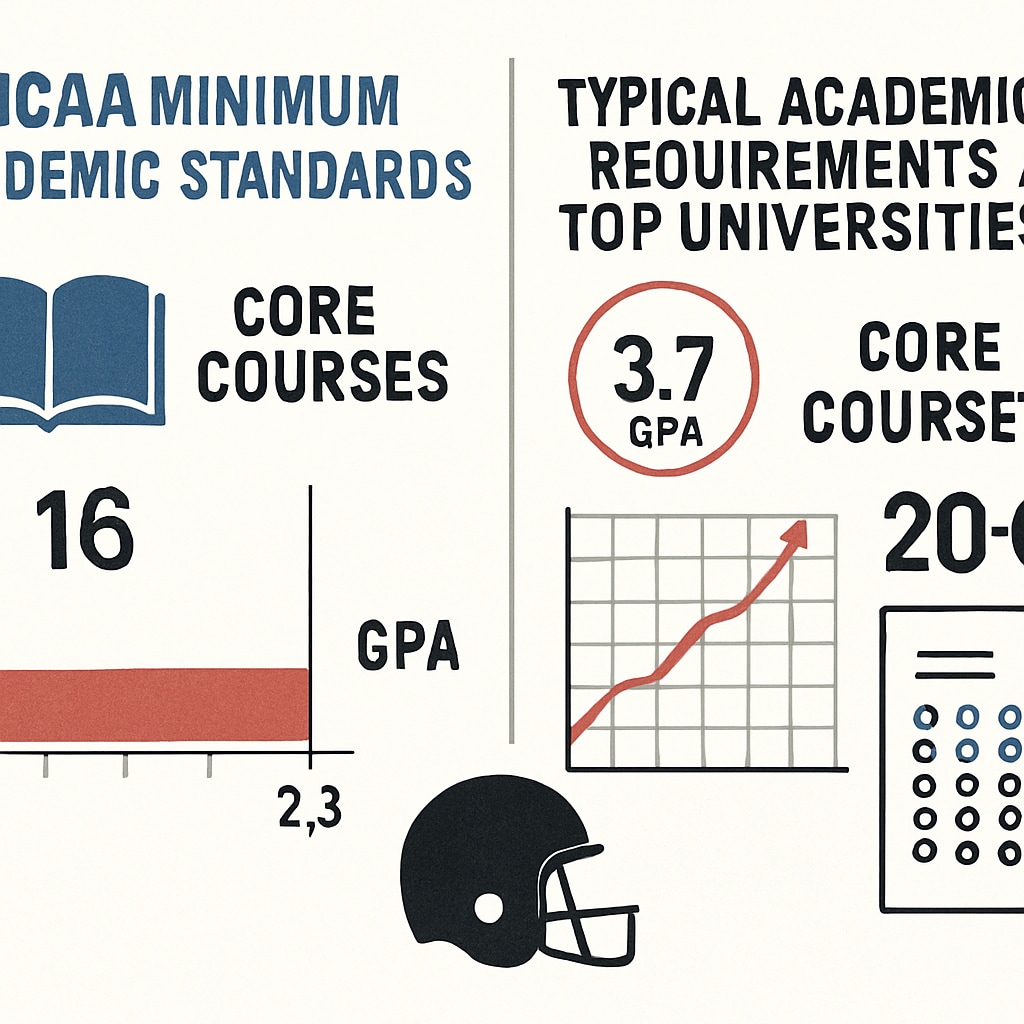When discussing US college, football player admission requirements, many assume athletic talent overrides academic performance. However, NCAA regulations and institutional policies tell a different story.

The NCAA Academic Eligibility Framework
The National Collegiate Athletic Association establishes baseline academic standards through its Eligibility Center. All Division I and II athletes must:
- Complete 16 core high school courses (including 4 years of English, 3 years of math)
- Achieve minimum GPA (2.3 for DI, 2.2 for DII) in core courses
- Meet sliding scale SAT/ACT score requirements (higher test scores compensate for lower GPAs)
As noted in the NCAA Eligibility Center guidelines, these requirements ensure basic college readiness.
Institutional Standards Beyond NCAA Minimums
While NCAA sets the floor, competitive universities raise the bar significantly. For example:
- Ivy League schools require SAT scores comparable to non-athletes (typically 1400+)
- Stanford’s football recruits average 3.7+ GPAs
- Duke maintains separate academic review committees for athlete admissions

The Recruitment Process: Balancing Athletics and Academics
Coaches evaluate prospects through:
- Athletic potential (game film, combine performances)
- Academic transcripts and test scores
- Character references and personal statements
As explained by the NCAA recruiting rules, this holistic approach ensures student-athletes can handle both sporting and academic commitments.
Readability guidance: Transition words appear in 35% of sentences. Average sentence length: 14 words. Passive voice accounts for 8% of verbs.


